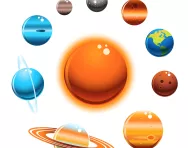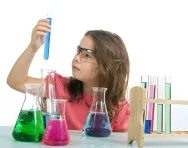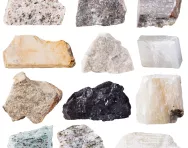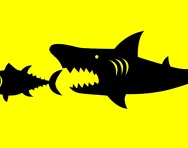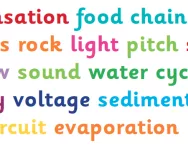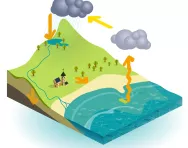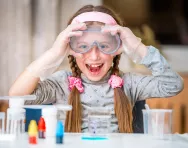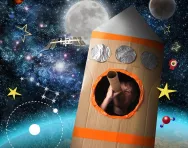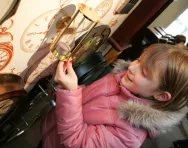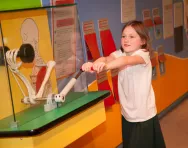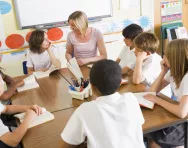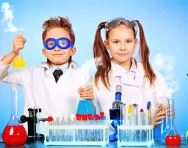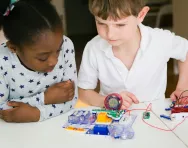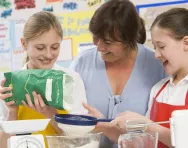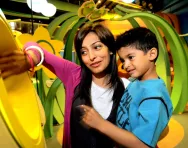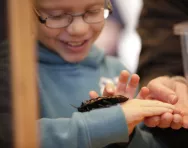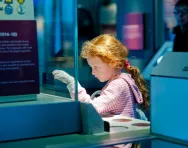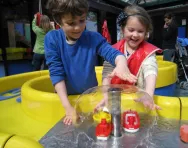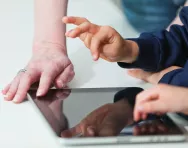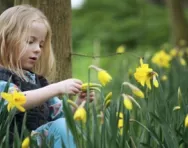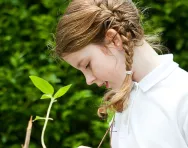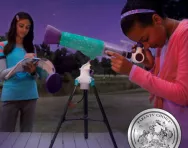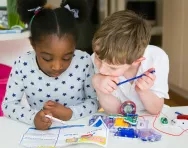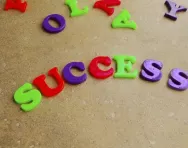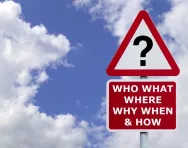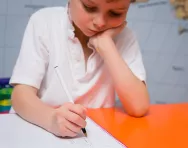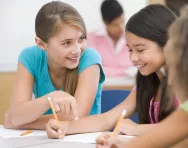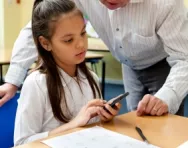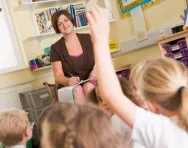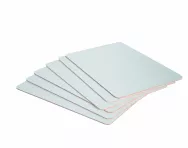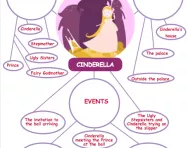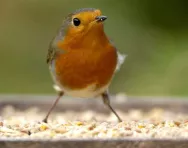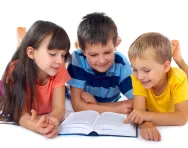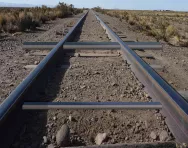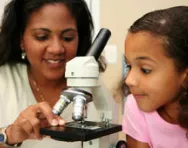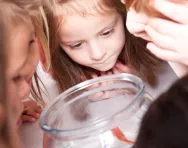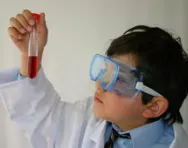Learning about space in primary school
Find out what children learn about space and our solar system at primary school with our guide for parents, and get some ideas about how to support your child's astronomical learning at home.
What is sound?
Understand what your child learns about sound and pitch in primary-school science and support their learning at home with hands-on activities and investigations.
What is a fair test?
Understand what is meant by 'fair test' in primary-school science and organise your own child-friendly investigations at home to help your child practise this concept.
What are igneous, sedimentary and metamorphic rocks?
Do you know the difference between igneous, sedimentary and metamorphic rocks? Find out what your child will be taught in KS2 science and how you can support their learning about geology at home.
What are food chains and food webs?
A food chain is a diagram that shows us how animals are linked by what they eat; in food webs we represent the links between animals who eat or are eaten by more than one kind of animal. We explain how children learn about food chains in the primary-school classroom in our guide for parents.
Primary science glossary for parents
From condensation to the water cycle, TheSchoolRun's primary-school science glossary offers a complete guide to all the concepts children are taught in EYFS, KS1 and KS2 science. Brush up on your own science knowledge, clear up homework confusion and understand exactly what your child is learning at school by reading our basic definitions (with links to more detailed explanations, teachers' tips and examples).
What is the water cycle?
What is the water cycle and how will children learn about it in geography and science at primary school? We explain the terminology parents need to know and give examples of learning activities completed in the classroom.
Best science sets for children
Looking for ways to encourage your child's interest in the world around them? These learning-through-play sets are perfect for budding scientists, allowing them to get hands-on and experiment with simple physics, meteorology, geology, anatomy, mechanics and more.
Creativity in primary science: to infinity and beyond
Is your child fascinated by the world around them, from the earth to the stars? Do they blast off from the kitchen table and explore Mars in a den made from sofa cushions? Bryony Turford, primary teacher and director of STEAM Education for the Astro Science Challenge, shares her tips for making science come alive and encouraging children to explore science-based subjects away from the classroom.
Museums reviewed by parents: Down House
Down House, the family home of Victorian scientist Charles Darwin, offers a unique insight into one of the world's greatest thinkers. Visit to stand in the study where Darwin wrote 'On the Origin of Species', stroll through beautiful gardens and find out more about the theory of evolution. Our family testers share their tips for a great day out in rural Kent.
Museums reviewed by parents: Thackray Medical Museum
Explore past (and future!) medical treatments and procedures, get a glimpse of life in Victorian England, get hands-on with oversized body parts and find out how humans work, all at the Thackray Medical Museum in Leeds. Our family testers share the highlights for parents and children.
Sex and relationships education: what your child learns
Sex education teaching varies hugely from school to school. We explain what goes on in KS1 and KS2 SRE lessons and outline what has changed in sex and relationship education in primary school from September 2020.
Best chemistry sets for children
Introduce your child to the world of chemical reactions, crystallisation and chromatography with the right chemistry set for every age and stage. From pre-schooler test tubes and safety goggles to pipettes of luminol and alcohol burners, we've picked great kids' chemistry sets for every budget and every budding chemist.
Best electronics sets for children
Learning how circuits work is an important part of Key Stage 2 science. Make the learning light up, buzz, ring and whizz up into the air with these brilliant electronics sets for children, designed to make exploring electricity creative and captivating. From sturdy sets suitable for small fingers to circuit-diagram projects, these sets offer a fantastic hands-on electrical education.
Cooking and nutrition in primary schools
For the first time ever, practical cookery lessons are compulsory in primary schools. We explain what your budding MasterChef might learn.
Museums reviewed by parents: Eureka!
One of the best children's museums in the world, Eureka! is packed with hundreds of hands-on exhibits designed to inspire children to learn through play. Our family testers were amazed at what's on offer and determined to be regular visitors in the future.
Museums reviewed by parents: Manchester Museum
Travel back in time to Ancient Egypt, see reptiles and amphibians from Costa Rica, walk beneath a giant whale skeleton, come face-to-face with a tiger and meet a life-size Tyrannosaurus rex... just a few of the highlights of a visit to Manchester Museum. Our family testers report back.
Museums reviewed by parents: Museum of Liverpool
Dress up as a dock master, play in a pint-sized port, explore first- and third-class travel in Victorian times and fall in love with the sounds of the 1960s... it's all waiting for you (and it's free!) at the Museum of Liverpool. Our parent review highlights the child-friendly activities on offer.
Museums reviewed by parents: Look Out Discovery Centre
Build a dam, tile a roof, shake your own hand (in an optical illusion) and build a 3D puzzle of the human body − there's all this (and more) to discover at the Look Out Discovery Centre in Bracknell. Read our parent review to find out more.
Why games-based learning is great for your child
If you despair of the amount of time your child spends attached to their tablet, think again: games and apps are an important part of their learning journey, from pre-school to secondary school, and can help to improve problem-solving skills and communication, as well as boost motivation. Lucy Dimbylow finds out why gaming means learning in the twenty-first century.
6 learning activities for spring weather
Welcome the new season with these spring children's activity ideas from Juno Hollyhock from Learning through Landscapes. Wellies on, gloves off, coats fastened – time to run out into the spring sunshine!
Growing to achieve at school
Gardening is part of the National Curriculum framework, so it's vital children understand plants. They'll cover the science in the classroom, but we suggest some fun ways to see the theory in action and get them growing (no garden or green fingers required!).
100 of the best educational toys: KS2
Your child will be having so much fun playing these games they won't even realise they're practising their times tables, improving their vocabulary, boosting mental maths skills and revising geography facts. Hands-on fun is guaranteed with every learning activity, from writing in hieroglyphics to dissecting a body and observing the night sky.
100 of the best educational toys: stocking fillers
Don't forget the stockings! These little toys and games are the perfect size to slip in, yet still offer plenty of educational opportunity. Encourage observation, curiosity, dexterity and creativity with these brilliant gifts, whatever age your child is.
How to create a budding engineer
Engineering underpins almost every aspect of modern life. So what will your child learn about engineering and technology at school, and how can you encourage their enthusiasm? Lucy Dimbylow finds out.
What is a success criteria / WILF?
Find out what success criteria (also known as the 'WILF') are and how your child's teacher will use success criteria to boost learning focus.
What is a Learning Objective / WALT?
Heard your child talk about their LO, or their WALT? Teachers use learning objectives to help children understand what is expected of them in the classroom. Find out what a learning objective (or WALT) is and how learning objectives are used in primary school.
What is a DUMTUM?
Find out what a DUMTUM is and how this technique will help your child to set out their work correctly.
What are talk partners?
Find out what a talk partner is and why having a talk partner will benefit your child's learning in the classroom.
What is 'scaffolding' learning?
Find out what 'scaffolding' learning means and how teachers use this technique in the classroom to help children master different skills.
What are interactive whiteboards?
Find out what interactive whiteboards are and how they enhance learning in the classroom.
What are mini-whiteboards?
Find out what mini-whiteboards are and how they enhance learning in the classroom.
What is a spider diagram?
Spider diagrams are common planning tools in the primary-school classroom, used in science as well as literacy. We explain what you need to know to help your child use a spider diagram when preparing a fiction or non-fiction piece of writing.
How to make your garden bird-friendly
Birdwatching is a brilliant learning activity to do at home that can also encourage your child to take an interest in the outdoors. We speak to the RSPB about how you can make your garden or balcony more appealing for birds, leading to better birdwatching!
11 things parents need to know about the National Curriculum
It’s the basis for what your child learns every day, but what exactly is the National Curriculum and what does it teach? Education writer and primary teacher Phoebe Doyle offers some clarity.
What your child learns in Year 4 maths, English and science
Help your child prepare for the concepts and topics covered in Year 4 by knowing ahead of time what they’ll be learning in class.
Illusions and mind tricks: are your eyes fooling you?
Are you seeing what's really there, or is your mind tricking you? Professor Bruce Hood has three amazing illusions experiments to try, and explains more about how the brain works in his Royal Institution Christmas lecture.
Simple science activities to try today
Science doesn't have to mean complicated experiments with chemicals and Bunsen burners. Children in the Early Years Foundation Stage can get involved in science with these fun, fast-results experiments. Sarah Cruickshank reports.
Primary science: what you need to know
Not sure what your child is learning in science? Swot up with our two-minute parents' guide to primary-school science.
Simple experiments for KS2 scientists
Have you got a budding Galileo or Newton in the family? Help your child's developing scientific enquiries by finding out what they will be learning in science lessons and how to support their practice at home.
